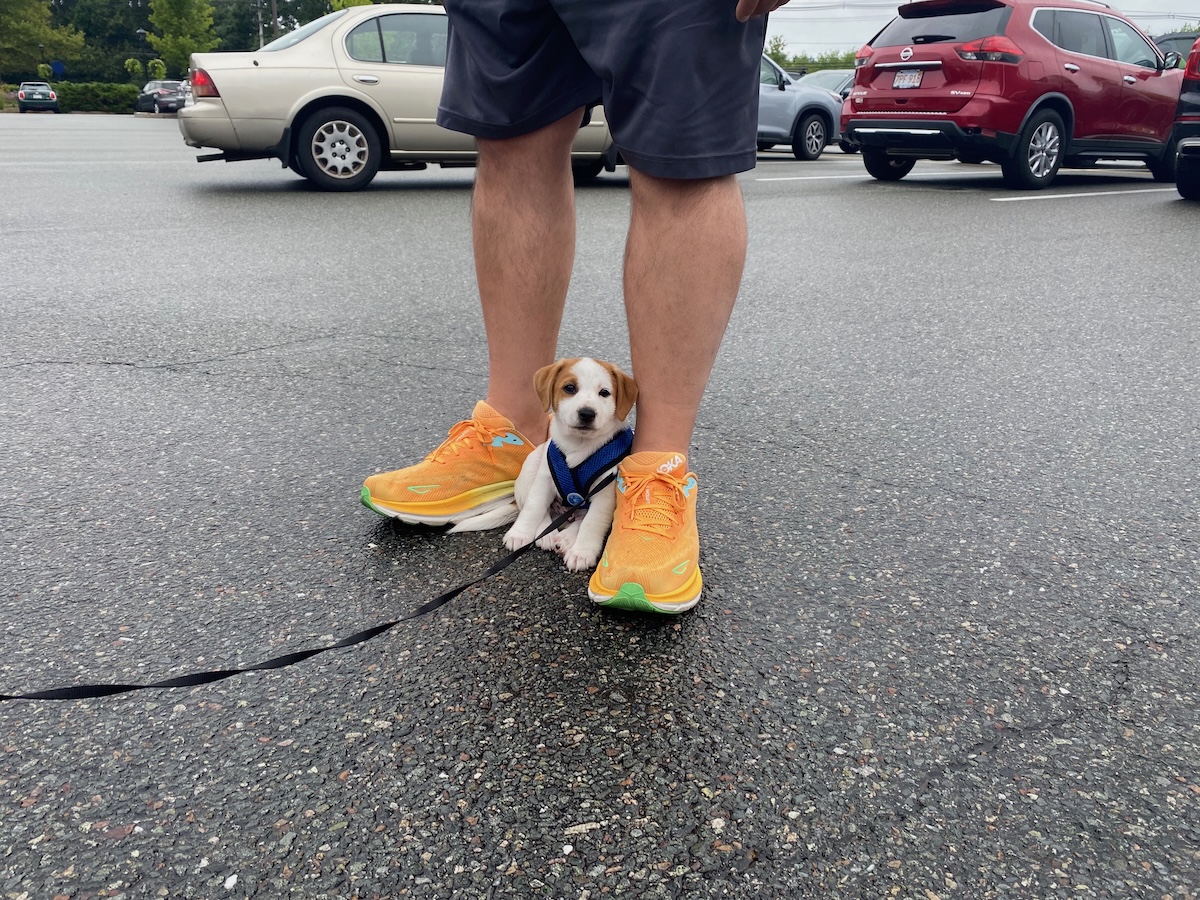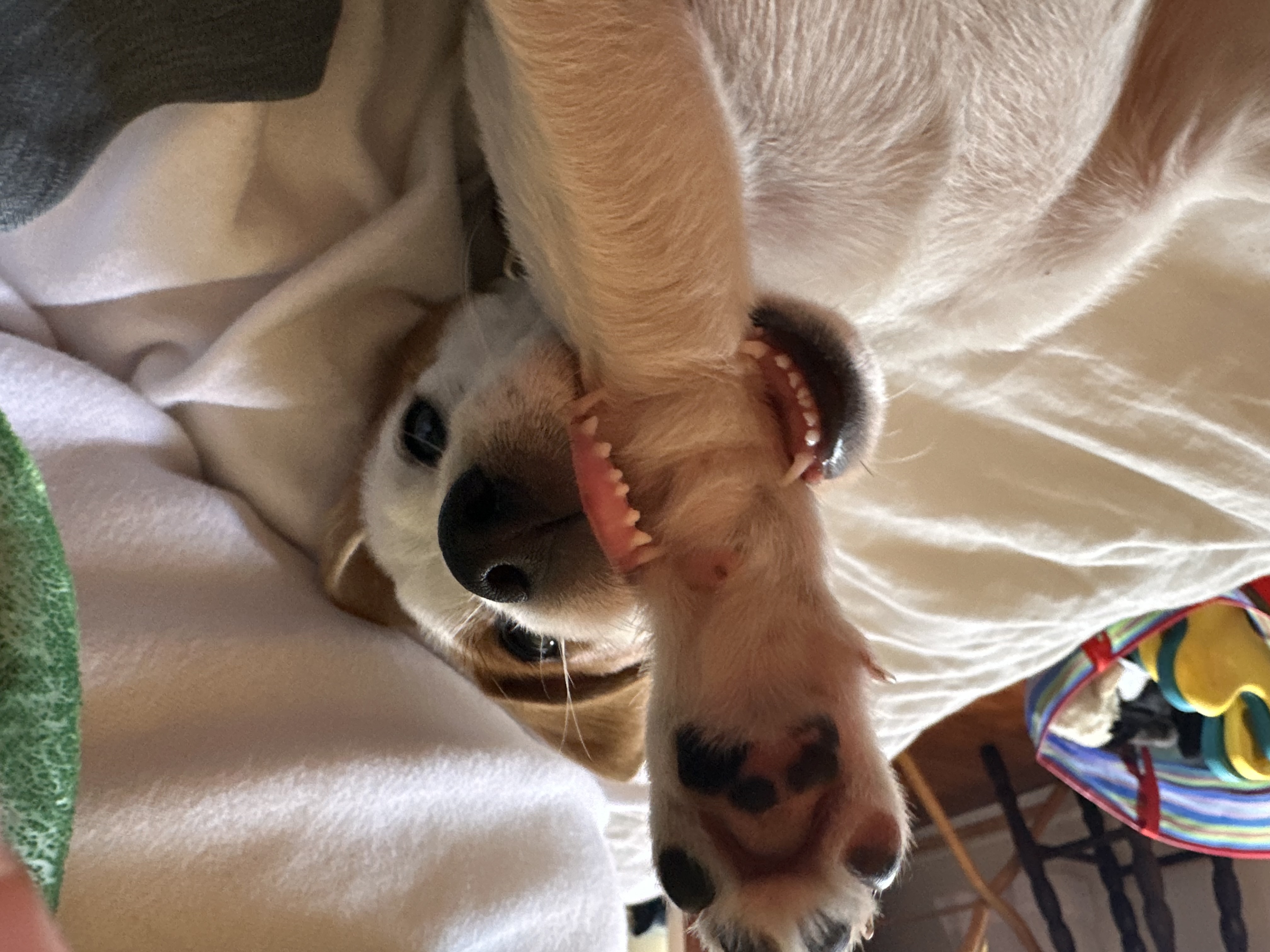
Parvovirus Risk & Puppy Socialization in San Francisco
Parvo, Puppies, and Socialization: What the Science Really Says
At SmartyPup!, we take the health and safety of our puppy students seriously—and we also believe you deserve clear, science-based information so you can make good decisions, not fear-based ones.
Parvovirus is a big deal. So is early socialization. The goal is not “pick one.” The goal is “use the science to do both, safely.”
Parvo Is Serious—But Usually Uncommon in San Francisco
Canine parvovirus is a highly contagious, potentially deadly disease, especially for unvaccinated puppies. It attacks the gut and immune system and can progress quickly without treatment.
But “serious” doesn’t automatically mean “everywhere, all the time.”
San Francisco typically sees about:
- 10–23 parvo cases per year
- That’s roughly 1–2 cases per month on average
In 2024, there was a temporary uptick, with 17 cases reported over six weeks. That was notable, but still a very small fraction of the city’s dog population and largely clustered in higher-risk circumstances.
San Francisco has an estimated 120,000+ dogs. To put that in perspective:
- 23 cases in a year ≈ 0.02% of the dog population
- 17 cases ≈ 0.014% of the dog population
So yes, parvo is serious. But for well-vaccinated, urban pet dogs, the overall risk is typically low when exposure is managed thoughtfully.
Think of it like this:
If a storm hits one part of the Bay Area, you don’t evacuate the entire West Coast. You pay attention to where the risk is, who is most vulnerable, and what precautions actually make sense.
Parvo Is Not “Everywhere Outside”
Some well-meaning veterinarians still tell puppy parents that their dog is at high risk simply by going outside until the vaccine series is finished. The intention is protection. The side effect can be unnecessary isolation during a critical developmental window.
Here’s what the science-based consensus supports:
- Research does not support total isolation for the entire vaccine series in most urban, well-vaccinated pet populations.
- For healthy puppies on a vaccine series, parvo risk is low when they are in clean, controlled, and thoughtfully managed environments.
- The cost of missing early socialization during the critical window can last a lifetime in the form of fear, aggression, or chronic anxiety.
This doesn’t mean “street-sniffing free-for-all.” It means precision instead of panic.
Local Risk Is Clustered, Not Evenly Spread
Parvo risk in San Francisco doesn’t float over the city like a uniform gray cloud. It clusters where conditions support it—especially in:
- Areas with lower vaccine access
- Places with higher rates of dog homelessness
- Neighborhoods with more dogs arriving from higher-incidence regions
That’s why blanket rules like “never let your puppy outside until 8 8weeks” don’t reflect how risk actually behaves.
A better question is:
Which specific places are higher risk—and which are relatively low risk when managed carefully?
That’s the lens we use at SmartyPup!.
Early Socialization Is a Developmental Deadline, Not a Lifestyle Choice
Here’s the “Neil deGrasse” part.
Imagine your puppy’s brain as wet cement for the first few months. Every sound, sight, person, and dog leaves an imprint. At around 12–14 weeks, that cement starts to set. You can still work with it, but it’s harder to reshape, and the changes are smaller.
That “wet cement” period is the early socialization window. During this time, puppies are forming emotional “headlines” about the world:
- “Strangers are safe.”
- “Dogs are fun.”
- “New places are manageable.”
Or, if they don’t get those experiences:
- “Strangers are scary.”
- “Dogs are threats.”
- “New places = danger.”
Leading veterinary behavior experts (including AVSAB) consistently emphasize:
The benefits of early, structured socialization outweigh the small disease risk for puppies on their vaccine series—when safety is managed correctly.
Two key quotes worth repeating:
“The first three months of life are the most important for socialization.”
“Behavioral issues, not infectious diseases, are the number one cause of death for dogs under three years of age.”
In plain English: more dogs lose their homes or their lives because of behavior problems than because of parvo.
What the Research Says About Puppy Classes and Parvo Risk
One well-known study looked specifically at vaccinated puppies attending socialization classes versus vaccinated puppies who did not attend class. The result:
Puppies in well-run socialization classes were at no greater risk of parvo than vaccinated puppies who stayed home.
When vaccination, hygiene, and professional management are in place, the disease risk is very low—while the behavioral and welfare benefits are huge.
Think of a puppy class as a supervised school campus with:
- Vaccine checks
- Cleaning protocols
- Curated classmates
Compared to that, a dog park or busy sidewalk is more like an unmonitored street festival: health status unknown, behavior unknown, and no one in charge of quality control.
How SmartyPup! Keeps Socialization Safe
We’re not doing “exposure roulette.” We’re doing structured, professional-grade socialization with protocols to match.
At SmartyPup!, we:
- Require proof of age-appropriate vaccinations before puppies join class
- Maintain strict cleaning and disinfection protocols for floors, tools, and surfaces
- Offer a controlled, low-risk indoor environment (not a public park or sidewalk)
- Build groups based on age, size, play style, and arousal level
- Supervise play for consent, safety, and emotional comfort—not just “tired = good dog”
Our goal: zoomies with purpose—play that builds social skills, resilience, and confidence.
Balancing Risk Like a Scientist (No Lab Coat Required)
Big picture:
- Zero risk doesn’t exist unless your puppy lives in a bubble.
- Reckless risk (dog parks, random dogs, high-traffic potty areas in high-risk neighborhoods) isn’t acceptable either.
- The sweet spot is managed, informed exposure: enough new experiences to build a stable, flexible nervous system, with safeguards to keep illness risk low.
In physics, you balance forces—gravity versus velocity, thrust versus drag. In puppyhood, you’re balancing:
Socialization benefit versus disease risk.
Our job (and your vet’s job) is to help you land in the zone where your puppy gets:
- Rich, positive experiences during the socialization window
- Appropriate vaccination and hygiene
- A plan that fits your puppy, your neighborhood, and your comfort level
Our Commitment
We stay current with:
- Local parvo trends and case patterns
- National and international behavior and health guidelines
- Input from veterinary, behavior, and infectious disease experts
If you’re unsure how to:
- Time vaccines with puppy classes
- Choose safe routes and potty spots
- Balance your vet’s medical advice with your puppy’s social needs
We’re happy to talk it through and build a plan that feels both safe and developmentally smart.
Disclaimer
This article is educational and not a substitute for veterinary advice. Always follow your veterinarian’s guidance for your individual puppy. If you’re getting mixed messages, we’re glad to be part of the conversation so your puppy’s health and behavior both get the attention they deserve.

